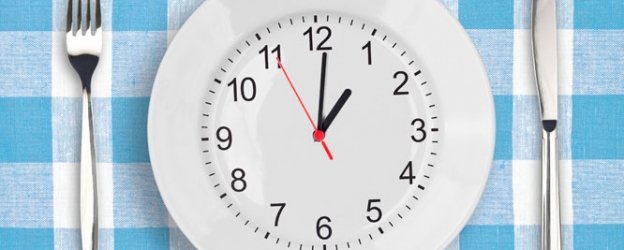Speedy weight loss? Timing of meals is key
29th January 2013

Although many of us thought this already, Iíve including this as news as this is apparently the first large-scale prospective study to demonstrate that the timing of meals predicts weight-loss effectiveness.
The study, published in the International Journal of Obesity, found that it’s not simply what you eat, but also when you eat, that may help with weight-loss regulation. To evaluate the role of food timing in weight-loss effectiveness, the researchers studied 420 overweight people following a 20-week weight-loss treatment program in Spain. The participants were divided into two groups: early-eaters and late-eaters, according to the self-selected timing of the main meal, which in this Mediterranean population was lunch. During this meal, 40 percent of the total daily calories are consumed. Early-eaters ate lunch anytime before 3 p.m. and late-eaters, after 3 p.m. They found that late-eaters lost significantly less weight than early-eaters and displayed a much slower rate of weight-loss.
The timing of the other (smaller) meals did not play a role in the success of weight loss. However, the late eaters — who lost less weight — also consumed fewer calories during breakfast and were more likely to skip breakfast altogether. Late-eaters also had a lower estimated insulin sensitivity, a risk factor for diabetes.
The researchers also examined other traditional factors that play a role in weight loss such as total calorie intake and expenditure, appetite hormones leptin and ghrelin, and sleep duration. Among these factors, researchers found no differences between both groups, suggesting that the timing of the meal was an important and independent factor in weight loss success.
Garaulet M et al. Timing of food intake predicts weight loss effectiveness. International Journal of Obesity, 2013; DOI: 10.1038/ijo.2012.229
Categories: Weight Management